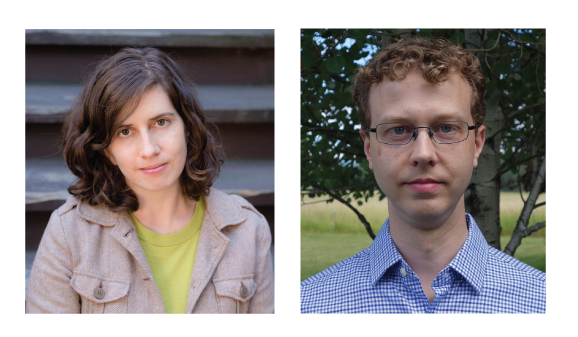
What is the Lecturer Teaching Fellows Program?
The Lecturer Teaching Fellows Program at UC Berkeley provides lecturers with an exceptional opportunity to work individually, or in teams, to build teaching and learning tools, templates, and resources for both their individual courses and the entire campus community. The program supports Fellows in generating dynamic tools and resources for enriching and/or innovating teaching practices on campus.What does it personally mean to you to be a Lecturer Teaching Fellow (LTF)?
Mark: The Lecturer Teaching Fellows Program offers an opportunity to get lots of talented teachers thinking together to address common pedagogical goals. These goals, shared by LTF participants, range from heightened communication between course material and the world outside the classroom to enhancing cross-disciplinary conversation for both students and faculty. Even though each of us is working on individual projects, we find frequent points of overlap through our conversations. When I learned that Margaret and I had been accepted into the program, I was excited by the prospect of being able to take part in these discussions, and I was optimistic that the program would help us refine our ideas and answer some of the more stubborn questions that we were still working through. Margaret: As Lecturer Teaching Fellows, we joined a community of teachers hoping to discuss — and solve — tough teaching problems. For Mark and me, it means we can think through questions of how to individualize writing instruction in the classes we teach, and how we can work to build a hub for scientific writing from our classes.What projects do you envision pursuing within the Lecturer Teaching Fellows Program?
Mark: We’re working on some ideas that will, on one hand, offer support to the students in our writing-focused Communications classes who need it most and, on the other, provide students with opportunities to hone their writing skills that go beyond what we are currently able to provide in our classes. Margaret: Exactly! We’re working to figure out ways to make our classrooms feel more like small seminars, to tailor our lesson plans to students at various levels, and to encourage students to take ownership of their writing processes through peer mentoring.What kind of impact do you want to have in education?
Mark: My goal at the Fung Institute is to help engineers communicate more clearly with each other and with other stakeholders in the surrounding community. The past year has demonstrated the importance of communicating science information in a way that is accessible not just to other people in STEM fields, but to broader, non-scientific audiences as well. Last semester, I taught a course through Berkeley’s Art of Writing program that focused on this question of reaching non-scientific audiences, and it’s a topic that I hope to return to in future courses. Margaret: I leave every class in awe of my students and their fantastic ideas and projects. I want to give my students the tools and confidence they need to take charge of communicating their ideas to others, and to be bold and take risks in how they decide to share their ideas and their work. I find that mentoring them one-on-one leads to incredible ah-ha moments for my students (and of course, for me). Students routinely identify their meetings with me as moments where their writing changed, or their idea got better, or they finally grasped a key aspect of the story they want to share through their writing. But mentoring 100+ students all semester is really challenging, to put it mildly. This grant will provide us tools to think about how to scale our work — and our mentorship — across the large group of students we teach, by empowering our students to mentor one another.What are some of your hobbies/passions?
Mark: I’m fascinated by technology, but my training in English has meant that I interact with it very differently from the engineers who develop it. In many ways, I’m part of the non-STEM audience that I’m trying to help my students reach: we want to know how we can use or how we’ll be impacted by technology, and those elements can be easy to overlook when discussing a new product or piece of tech. Margaret: My hobbies (running, swimming, yoga, hiking) are all a lot like writing: they require a daily slog to get to a moment of epiphany or rightness. Every time I assign a tiny assignment on the way to a bigger goal, I think about those pursuits — how important all the little daily steps are on the way to a marathon, even if they aren’t visible to anyone else. Connect with Mark and Margaret.Margaret Kolb and Mark Bauer accepted into Lecturer Teaching Fellows Program was originally published in Berkeley Master of Engineering on Medium, where people are continuing the conversation by highlighting and responding to this story.

